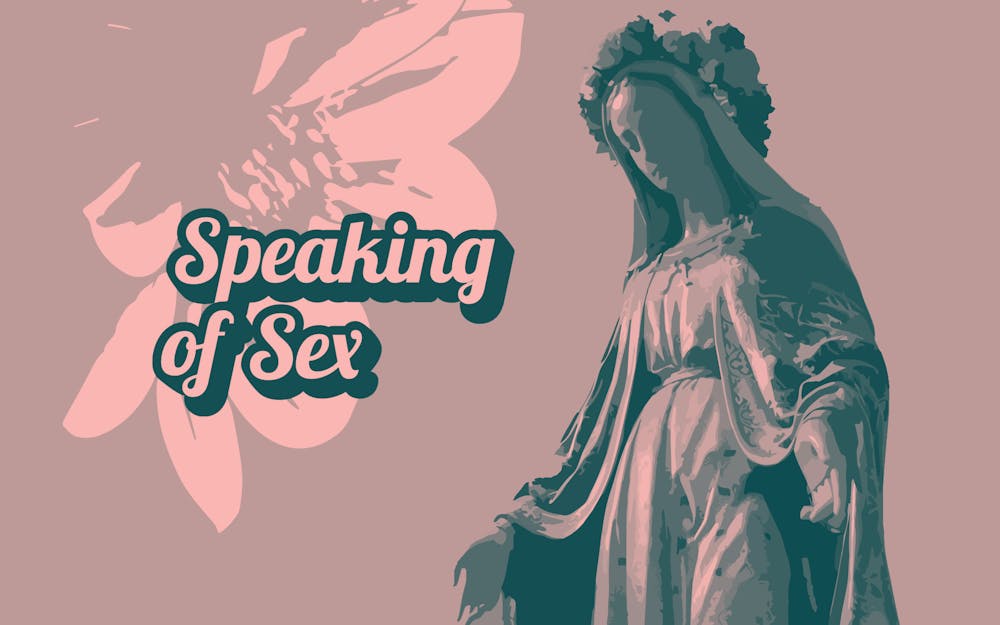“What’s the deal with virginity?”
Losing my virginity was always a scary concept. After reading horror stories online or in books, as a cisgender woman I was terrified of what it meant for my body physically and emotionally.
Will I bleed? Will I regret it no matter how or when I do it? Will it hurt? Will I be a changed person? What exactly happens to my hymen?
As it turns out, the fear didn’t mean I lacked courage. I lacked proper education on virginity. I didn’t realize one does not, in fact, “lose” anything once they have sex for the first time. In fact, you can gain something wonderful.
One way to ease uncertainty surrounding the loss of your virginity is to hear the facts from professionals. These conversations may be intimidating to have in person, which is why I have turned to online resources over the years, such as Planned Parenthood's sexual health page.
Planned Parenthood’s resources are helpful in dispelling myths about virginity, such as the idea of “popping the cherry,” also known as breaking the hymen. According to Planned Parenthood’s section on virginity, “Some people believe that you’re not a virgin if your hymen is stretched open. But having a hymen and being a virgin is not the same thing.”
Rumors such as these are meant to scare young people into not having sex, which perpetuates the goals of anti-sex and conservative movements advocating purity culture.
Virginity and “purity culture” are designed to police women’s bodies. According to Christians for Biblical Equality, a religious group that advocates for the equality of men and women, purity culture teaches women that their bodies are something to be ashamed of, they should not feel sexual desire and their worth depends on their virginity status.
Perhaps the most damaging aspect of purity culture is that consent is rarely, if ever, discussed. This can lead women to feel as though they deserve sexual abuse if they engaged in pre-martial sex, according to an article from the School of Sexuality Education.
Some scholars have even discussed the possibility that virginity doesn’t have a clear definition.
“There's no one scientific definition of 'losing your virginity,'” Dr. Jennifer Lincoln, an OBGYN and well-known online sex educator said in one of her TikTok videos. “Virginity is a social construct, and not a really useful term, is it?”
She also approached this idea from a non-heteronormative point of view, which is rarely talked about in American sex education.
“If losing your virginity means having penile and vaginal sex, then men who have sex with men or women who have sex with women, do we consider them virgins forever?” Lincoln said in her video. “I think they would disagree.”
These examples only skim the surface of the dialogue being had about virginity — with all of its flaws and inconsistencies.
I urge you to think about what virginity has meant to you, and examine why you feel that way. Not only can it help assuage anxiety surrounding having sex for the first time, but it can be liberating as well.
Although we live in an often Puritan society which condemns sex and discussions surrounding sex, it is constantly being talked about. Whether it be through cultural rhetoric, religious ideas or sex education — especially when emphasizing the importance of abstinence — virginity has always been a big deal.
Virginity, and what it means to “lose” it, is unique to every person. Your sex life, sexual partners and sexual experiences do not determine your worth, and no one can tell you what is right or wrong.
Speaking of Sex will be an affirming, nonjudgmental space exploring a myriad of topics related to gender and sexuality such as bodily normalization, pleasure-focused sex, healthy boundaries, consent and alternative relationships. You can submit questions via email at speakingofsex@ids.com or anonymously in this form.
Editor’s note: Advice offered is intended for informational use and may not be applicable to everyone. This column is not intended to replace professional advice.
Taylor Harmon (she/her) is a sophomore studying sexuality, gender and reproductive health with a minor in theater and drama.






